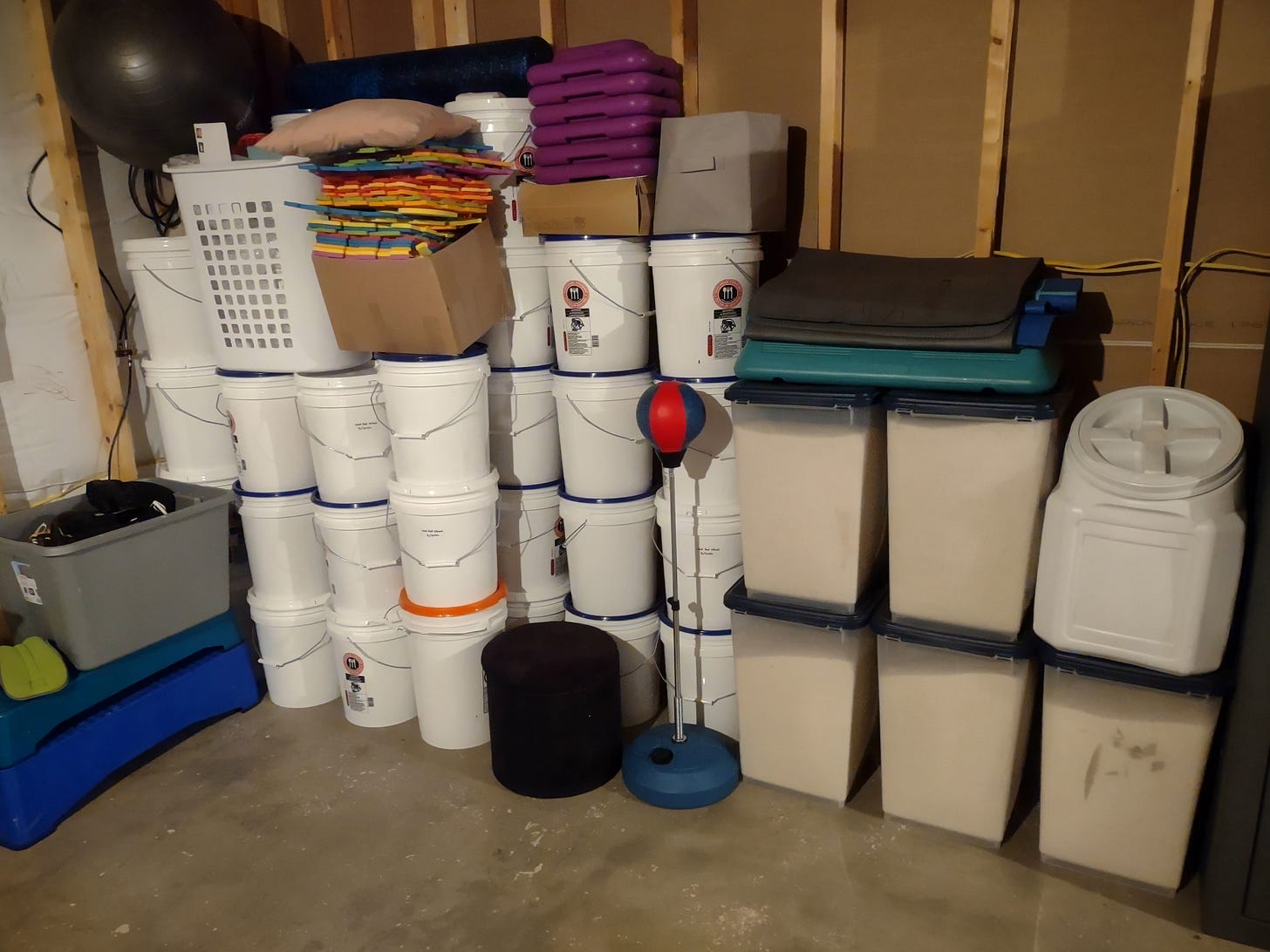#12: Food Storage as Cancellation Insurance
We’ve got 1,750 pounds of dry grain in our basement: a 9-month supply for everybody in the Bennett household, according to the Church of Jesus Christ of Latter-Day Saints’ food storage recommendations. When our houseguests notice this, it often leads to conversations about Global Thermonuclear War.
You may have heard that there’s a fertilizer shortage, and wheat futures are way up. Also gas, and beef. Things are a little dicey, and it’s nice to know the food would be there if we needed to hunker down for a while.
There probably won’t be any Global Thermonuclear War, though; probably prices will drift back to normal, or at least stabilize at some manageable (higher) baseline. Odds are still pretty decent that the present system will limp along for another 30 years, and my food storage will go bad on the shelf like my grandpa’s did.
But when I got doxxed back in August, I needed time and space to maneuver.
If my family had been living paycheck to paycheck, I would have had to take the first job that was on offer — probably at a significant pay cut — just to avoid defaulting on our mortgage or going into significant credit card debt. Even if I could wait around for a month or two to find a decent job, I would then be locked into that job (and constantly looking over my shoulder for my tweets to “resurface”).
Knowing we had that food storage substantially reduced our fear of unemployment, and lowered the family’s minimum budget — which meant we had three more months of runway than we otherwise would have. It made it easier to make investments and take risks to grow the business. It made the whole project a much easier sell for my wife.
You can, of course, just save more cash to the same purpose, but cash is an increasingly uncertain investment, and the psychological power of having a mountain of food in the basement — especially given my family size — was worth the effort. It was one more thing that was in my hands, and not my enemies’.
So maybe you want to try it out.
White rice, oats, and wheat will keep for at least 30 years if they’re stored in airtight containers in a climate-controlled environment.
The most common method is mylar bags stored in 5-gallon buckets. You can use a standard Home Depot bucket with a $1.00 lid, because it’s just there for structure — you’ll make the package airtight by sealing the mylar inside with an iron. (As far as I can tell, mylar is among the safer food-grade plastics to do this with.)
As for buying the grain itself, I just went down to Aldi (you can also go to Winco, or any discount grocery that has these dispensers) and asked them if I could special-order it in bulk. Had to fill out a form and come back a few days later; then they wheeled a motorized pallet out to the parking lot and helped me load up my minivan. 500 lbs of oats, 500 lbs of hard red winter wheat, and 750 lbs of white rice.
It took me a total of about $800 and 6 hours to buy it, load it into the mylar bags, seal them, and then stack and label the buckets. Not a crazy amount of work for a little insurance.
In every EXIT trades call, we talk through hands-on projects like this: building a chicken coop, wiring up an electric fence, buying a fixer-upper, learning to hang drywall. These skills might make us a little more useful and survivable in an emergency situation, but the biggest benefit is that it limits how badly we can be punished here and now.
Events in Canada and Russia have taught me that I’m still not cancel-proof — but if they shut us down tomorrow, my kids will at least have oatmeal to eat while we figure out what’s next.
Learn more about the trades group, and our four other accountability groups, at exitgroup.us






